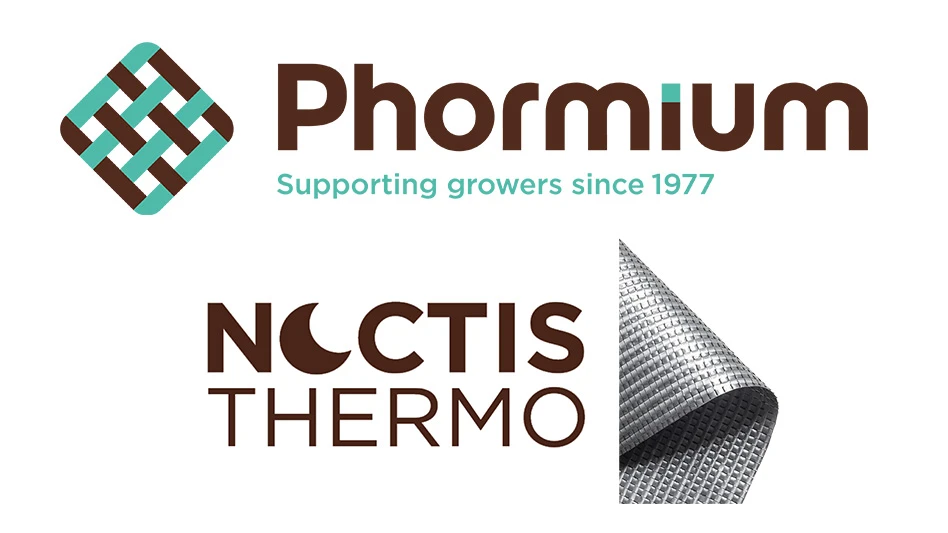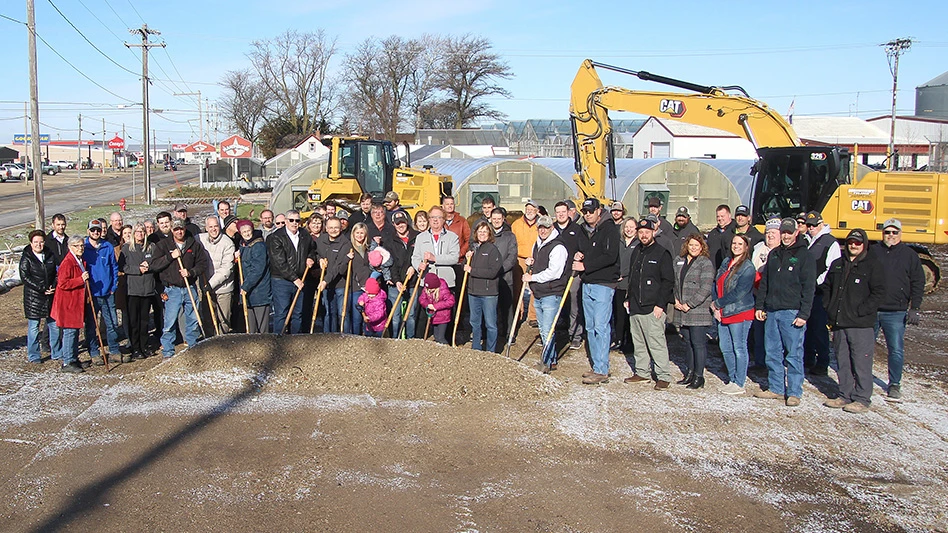The green industry never stops innovating.
Plants grow at their own pace, but the infrastructure and processes that help them grow optimally and sustainably are excellent targets for improvement.
Here are two products now available to help growers flourish into the future.
Wadsworth Control Systems Predictive Weather for Seed control

Automating greenhouse tasks and climate is made simple through control systems that allow for monitoring and control based on inputs like soil moisture content and greenhouse temperature.
Up until recently, these controls were limited to monitoring and reacting to the real-time input from the various sensors a grower is using. So, managing ventilation, shade control and watering was, by necessity, about reacting to rather than predicting conditions.
But that reality has changed.
In December 2024, Wadsworth Control Systems launched Predictive Weather, a service for its Seed control system. The new capability monitors highly localized weather data from a grower’s location, including temperature, humidity, precipitation and wind, to predict greenhouse needs. That automation allows Seed to automatically close vents, adjust fans and take other protective measures to safeguard crops and structures before weather arrives, giving growers an edge and some extra peace of mind.
“The system even allows us to maintain airflow on the downwind side during high winds,” explains Tyler Whitley, head grower at Station 10, Bonnie Plants, where the Predictive Weather tech is now in use. “With Predictive Weather, we go beyond standard monitoring to add a new layer of protection.”
Dramm CE-Line Nutrient Analysis

The macro- and micronutrients available in your water are crucial to plant growth. But understanding the quantity of nutrients like potassium, sodium and magnesium available in the water supply has traditionally required sending samples to a lab and waiting for results.
But when production is rolling or there appear to be issues with plants, waiting for samples can waste precious time.
To make water sampling more immediate, Dramm has introduced the CE-Line nutrient analysis system.
Dramm says that the CE-Line unit provides lab-grade data, with nutrient testing taking about an hour — an incredible leap in testing speed. The unit can be plumbed into the irrigation system and can sample multiple input sources. The best-use scenario for CE-Line is for growers who are reclaiming and reusing water for irrigation. For instance, a single unit can sample the water after nutrients have been added but before it reaches the plants, and also after the water has been reclaimed.
“Our customers are saying it’s like turning lights on. It was a blind spot. So, we’ve heard customers who even after a couple of weeks are noticing trends in nutrients that they didn’t expect,” says Dramm marketing and sales associate Noah Becker. “We’re filling in a lot of data points and realizing they matter more than they did.”
The nearly real-time data can be used to adjust nutrient inputs, and Dramm is currently working with companies to figure out how their APIs can be integrated to make automated adjustments broader and more universal.
But for now, CE-Line enables growers to have access to never-before-seen data points they can use to better understand how nutrients are used by plants based on any number of biological or environmental factors.
This article appeared in the April 2025 issue of Greenhouse Management magazine under the headline "The innovators."

Explore the April 2025 Issue
Check out more from this issue and find your next story to read.
Latest from Greenhouse Management
- This month's Greenhouse Management magazine is about native plants and sustainability
- The HC Companies, Classic Home & Garden merge as Growscape
- Terra Nova releases new echinacea variety, 'Fringe Festival'
- Eason Horticultural Resources will now officially be known as EHR
- BioWorks receives EPA approval for new biological insecticide for thrips, aphids, whiteflies
- ScottsMiracle-Gro transfers cannabis subsidiary to focus on core lawn and garden business
- Should we start calling natives 'eco-beneficial plants'?
- Ellen Mackenbach-Lakeman appointed new CEO of Dümmen Orange








